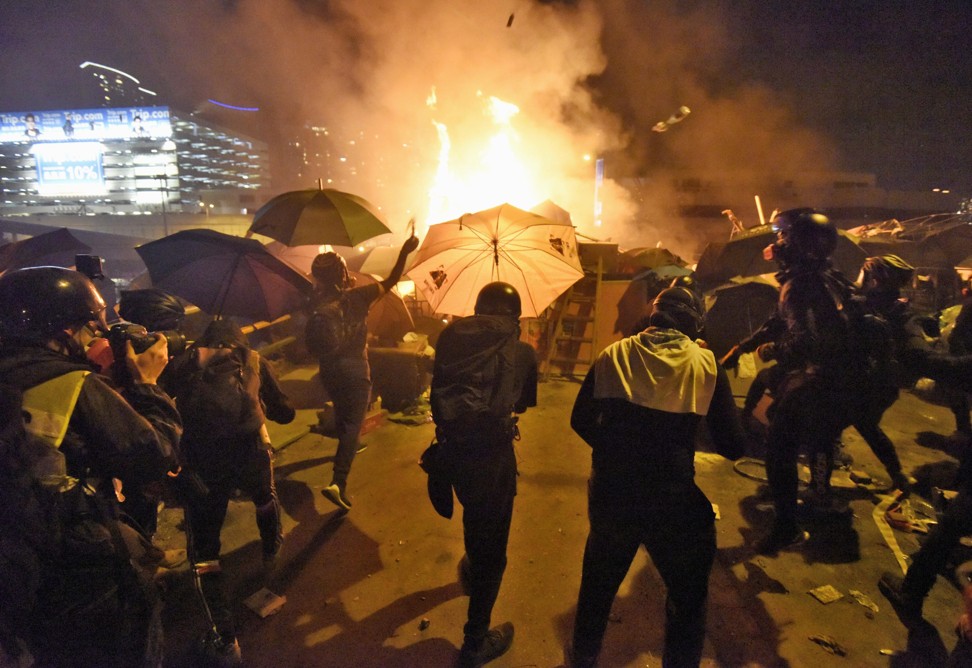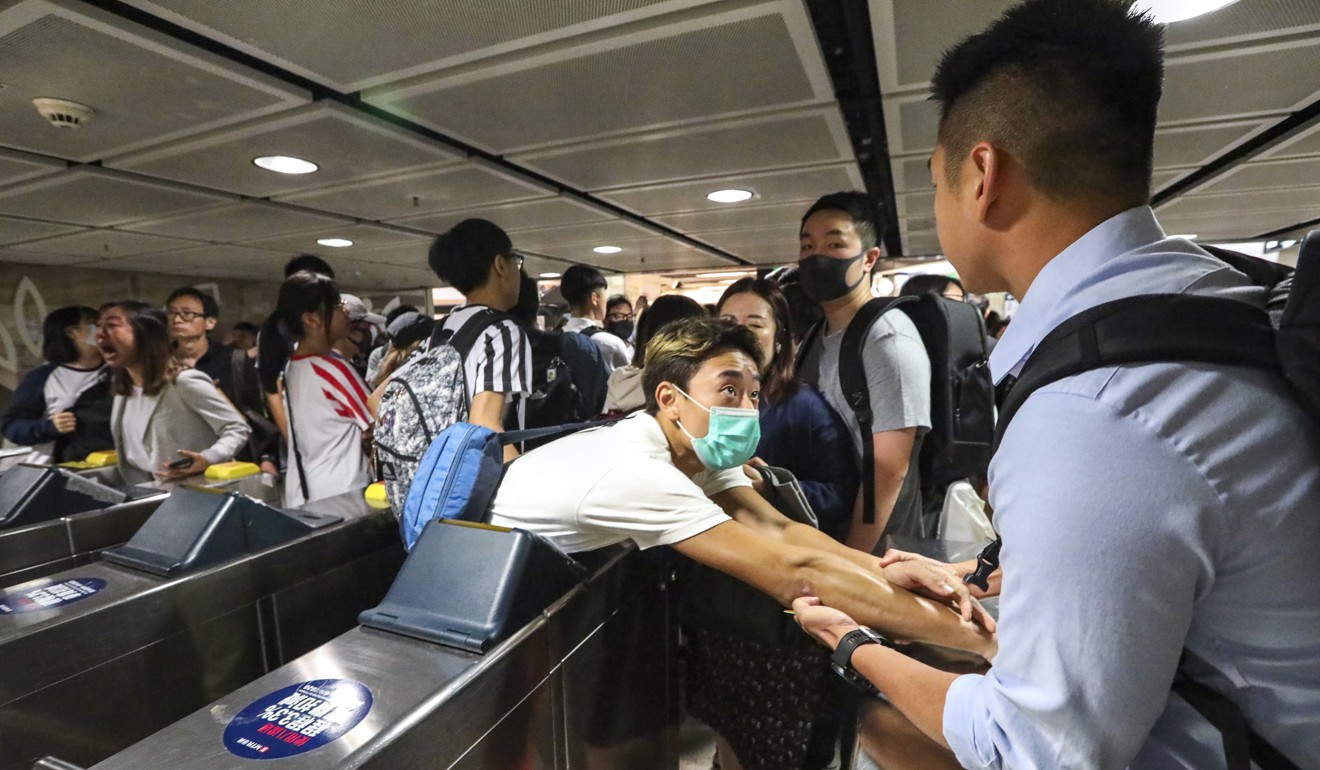
Hong Kong protest paradox: can a democracy movement backed by bigotry and vigilantism succeed?
- The humour and humility evident in protest art is sorely lacking in those at the forefront of street unrest
- People who brush aside protesters’ acts of violence are doing the movement no favours

In Hong Kong, there’s poison in the air and it isn’t just toxic tear gas. Too many people are making excuses for inexcusable violence. It’s one thing to hear protesters claim it’s all the fault of the police, but even journalists and foreign commentators are joining the protesters-can-do-no-wrong bandwagon.
“We in the West have no right to condemn the violence of protesters facing tyranny,” writes Richard Lloyd Parry, talking about Hong Kong in British daily The Times.
On November 28, in the same month that a man was nearly burned alive for disagreeing with a group of partisans, local residents who tried to remove road blocks were physically attacked, a policeman was shot with an arrow and an elderly man died after being hit by a brick during clashes between protesters and their opponents, Parry writes of the protesters: “Far from condemning them as thugs, we should support them in their struggle, recognise their courage and salute them for their continuing and remarkable restraint.”
I beg to disagree. There is inexcusable violence on both sides. The police, who are better armed and enjoy legal privileges, have much to answer for. But the black-shirted demonstrators do not get a free pass to vandalise, let alone beat and burn bystanders.
Parry attributes to Hong Kong a kind of Orientalist essentialism. What might look like deplorable violence to us “right-thinking” people in the West is not deplorable to them. Oh, really?

Sadistic individuals can infiltrate the ranks anywhere, but for a movement to remain viable, those with psychopathic tendencies need be isolated, contained and neutralised. There’s no room for bigots, bullies and thugs in a moral movement, as Mahatma Gandhi, Martin Luther King and Nelson Mandela each learned the hard way.
Any democracy movement worthy of the name must take human rights, tolerance of diversity and peaceful conduct seriously. Accountability is key, so is honesty.
When a million people marched peacefully in June, hope and elation was in the air. Hong Kong was onto something extraordinarily disciplined, inspiring and good. When nearly 2 million marched, it was one for the history books.
The effusion of music, art, and Cantonese word play demonstrated that soft power is the weapon that people facing down an unfeeling bureaucracy wield best. Cultural creativity inspires, enlightens, soothes and calms; it allows for some breathing space, humility and humour.
But humour and humility are in short supply among vigilantes, who, apparently frustrated with impotent rage, have engaged in staged attacks and takedowns, even mob justice, all the time hiding behind masks, lying through their teeth, torching shops and disrupting transport.
What started out as a good, broad humanitarian movement got hijacked by a handful of narrow-minded, spiteful radicals, often working in autonomous cells. Street fighting has disrupted Hong Kong life ever since the peaceful marches and marred the city’s reputation as a good place to do business.
These scattered attacks do not merit a massive crackdown, let alone intervention by the People’s Liberation Army, but the situation merits smarter policing, the unmasking of perpetrators and continued citizen vigilance.
Like the Red Guards during the Cultural Revolution, who were spurred on in the moment to engage in reflexive, unthinking carnage, this is a youth movement gone amok, egged on by dark political forces with ulterior motives not necessarily in the community’s interest.
The assaulting of hapless pedestrians bears disturbing echoes of novels such as William Golding’s Lord of the Flies and Anthony Burgess’ Clockwork Orange, in which violence is the drug of choice.
To justify the insupportable, pretexts are dreamed up on the spot. Wrong place, wrong time. Wrong accent, wrong attitude. Wrong clothing, wrong age.
With “frontliners” of this sort, who use the peaceful crowd for cover, how can Hong Kong’s democracy movement remain democratic? The plot has unravelled.

An abusive minority has poisoned the communal well, and nobody’s addressing it. Some are simply afraid to speak up. Others take a wait-and-see attitude. Some are blinded by partisanship, while others are obliged to seal their lips for reasons of operational discipline.
And so the barbaric thuggery goes on. Even after the entirely peaceful and edifying round of district elections, violent and incendiary acts are again in the news.
Parry exhorts his readers in The Times to “support” and “salute” the Hong Kong protests despite the violence; I say it’s time to cease “adding oil” to the flames and stop validating violence. Instead, it is time for accountability, atonement and turning a new leaf.
Philip J. Cunningham is the author of Tiananmen Moon, a first-hand account of the 1989 Beijing student protests